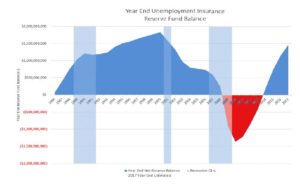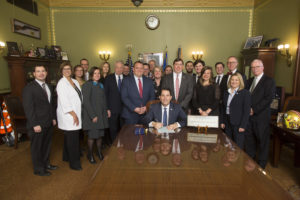The latest Marquette University (MU) Law School poll, released Sept. 18, showed incumbent Republican Wisconsin Attorney General Brad Schimel as an outlier among declining numbers for Republican candidates. In the first head to head question from the MU poll in this year’s attorney general race, Schimel led his opponent Josh Kaul 44 to 38 percent among likely voters.
However, the attorney general candidates are still largely unknown, with 69 percent saying they have not heard enough about Kaul, and 44 percent saying they have not heard enough about Schimel.
The poll showed that 24 percent of voters view Schimel as favorable and 20 percent view him as unfavorable (compared to 26 percent favorable and 16 percent unfavorable in the previous poll).
Just 7 percent of voters have a favorable opinion of Kaul, and 5 percent have an unfavorable opinion (compared to 4 percent favorable and 3 percent unfavorable in the previous poll).


